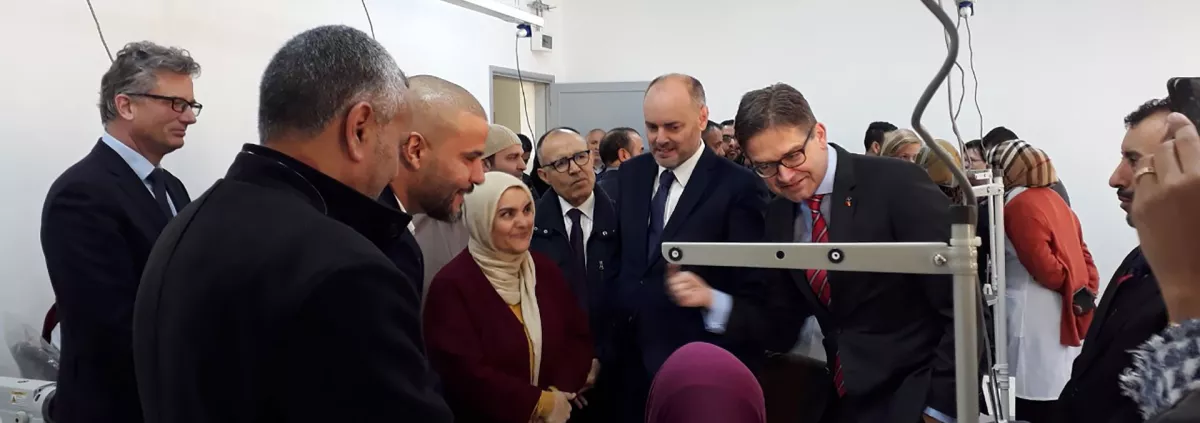A gender-sensitive approach to promoting female employment
Overview
The Centre for Women's Development and Training was planned as a socio-economic project that aims at women’s economic empowerment and promoting female entrepreneurship. The center provides job matching services and capacity development courses that include trainings on various scientific and social topics as well as recreational activities that target the wellbeing of the beneficiaries.
The project is part of the European Union and Bundesministerium für wirtschaftliche Zusammenarbeit und Entwicklung (BMZ)- funded "Support to Municipalities" programme in Libya, which is implemented by GIZ in cooperation with the Libyan Ministry of Local Governance and the Municipality of Hay Al-Andalus. Other key stakeholders included the local civil society, the office of women’s empowerment in the presidential council, the Ministry of Labour and businessmen in the municipality.

Background
The municipality of Hay Al-Andalus is located in the northwest of the capital Tripoli. It has a population of 340,000 people and is the third largest municipality in terms of population in Libya.
The civil war has had a disastrous impact on the infrastructure and lives of the local population. Many women found themselves as the single breadwinners in their households, yet they cannot find suitable employment opportunities in a safe environment.
To address this shortage and the pressing need to promote female livelihood opportunities, Hay Al-Andalus Women's Training and Development Centre was established as a place that meets the needs of women in this city.
Objectives
Establishing a Training and Development Center to strengthen the social and economic ability of women in the local community of Hay Al-Andalus to meet their essential needs in a sustainable manner. Among the targeted women are women with disabilities, widows, and those who were internally-displaced due to the civil war.
Activities
- Assessing the needs of women in the local community in close engagement with the civil society
- Renovating the Center’s premises and equipping it with all the necessary machinery and equipment
- Conducting study tours to similar centers in Tunisia in order to learn from their good practice in the management of such a project. This peer-to-peer advisory resulted in the selection of highly competent female trainers to conduct textile training in the Center in Hay Al-Andalus. Furthermore, a training of 40 female trainers was hosted by the SARTEX Centre in Monastir, Tunisia.
- Signing a Memorandum of Understanding between the GIZ and the municipality to clarify the division of roles and responsibilities.
- Preparing a comprehensive training curriculum for the endorsement of the Ministry of Labour
- Launching of the production unit at the Center to cover its running costs and achieve financial sustainability.
- Conducting courses on various topics such as human development, computer skills, and cosmetics.
Effects
- More than 40 women have acquired basic skills in textile production.
- After graduating from the center, four women have started their own businesses and a few others have found employment.
- Production and selling of 200 textile items
- Supporting the municipality in combatting Covid-19 pandemic, by focusing on the production of medical protection supplies
- The presence of a women's centre has improved the wellbeing of women in the local community and their community involvement.
- Green spaces were preserved during the renovation of the Center’s premises, and a children's playground is being constructed to ensure access of beneficiaries to the needed childcare services during their training.
- Launching the production unit at the Centre was accomplished in a short time, which had a key role in making revenues and ensuring the financial sustainability of the Center.

Conclusions
The high engagement and full cooperation of the municipality and all relevant stakeholders was key in the success of this good practice example. Nevertheless, there is still the need for a supporting environment to ensure the promotion of female employment and entrepreneurship for women. This can be achieved by legislating a ministerial law that guarantees the leading role and rights of women in the management of the Center.
